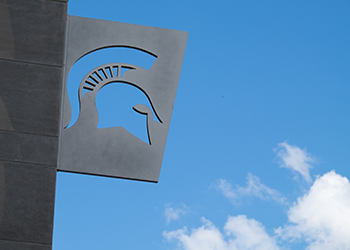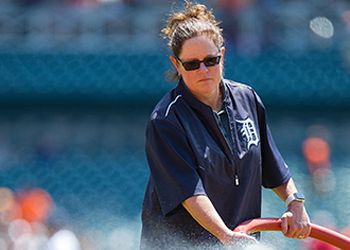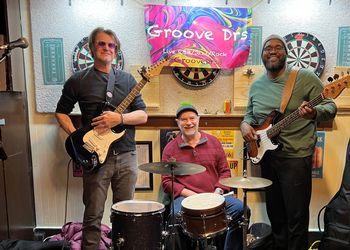WORKING TODAY FOR A BETTER TOMORROW: SUSTAINABILITY AT MSU

MSU boasts a wealth of environmentally friendly research projects, on- and off-campus programs and countless initiatives devoted to global sustainability. Here are just a few examples:
· President Lou Anna K. Simon is leading an APLU committee of higher education institutions focused on feeding the globe’s burgeoning population.
· The Office of Sustainability is an umbrella for learning about all things sustainable at MSU.
· Lori Welch, an MSU alumna, was recognized at the 2016 Be Spartan Green Award Gala for her role in implementing communitywide curbside recycling.
· MSU’s Energy Transition Plan is guided by a group of faculty, students and staff striving to help the university reach its goal of relying only on renewable energy sources in the decades ahead.
· The MSU Extension operates in every county statewide. It offers training, programs and resources in such areas as urban agriculture, food and health, gardens, natural resources and more.
· MSU’s Surplus Store and Recycling Center sells used university goods and accepts recyclables from residents on and off campus. On-site solar panels produce up to 10 percent of the facility’s power.
· Residential and Hospitality Services runs programs and services designed to reduce food waste, conserve energy and water, and to divert goods from landfills.
· An anaerobic digester was opened on south campus in 2013 to process dining hall and farm waste as a way to power several MSU buildings.
· Ten MSU buildings are LEED certified, based on energy efficiencies, water use and resource stewardship.
· The Spartan Green Certification program recognizes offices and events for recycling and waste reduction.
· The MSU Student Organic Farm is a hands-on operation practicing sustainable agriculture. In addition to growing vegetables and fruits, the farm raises pigs that are free to romp and root around the crops, integrating all parts of crop and livestock production. From April to October, student farmers sell crops on campus and spread the word about organic, sustainable food production.
· The Bikes Service Center rents, refurbishes and repairs bicycles for the campus and greater community.



